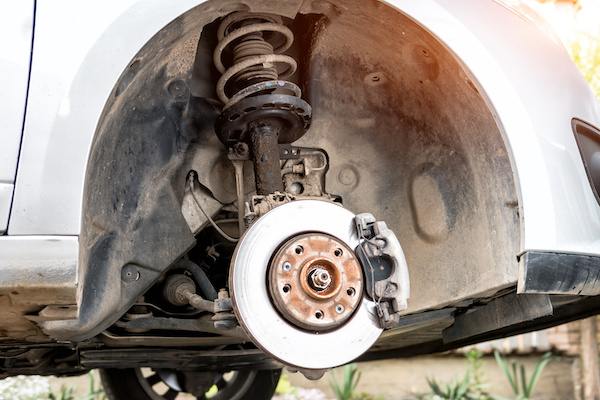Posted on 2/27/2023
.jpeg)
The system in your car relies on specialized liquids that help the vehicle system function normally. These fluids need to be checked regularly to ensure they are clean and fresh. These fluids perform various functions that include; cooling, lubrication, and hydraulic assistance. To prevent vehicle breakdowns and part failures flushing out these fluids or exchanging them is mandatory. The process enables the parts to stay intact and not rub excessively or wear out. Here are the fluids that need to the changed or flushed to ensure the vehicle stays in a mint condition; Brake fluid Brake fluid is a solution used for the hydraulic braking system of your car and is designed to transform your foot workforce on the brake pedal to pressure your car brakes. When there is moisture in the braking system then there is the need to perform a brake fluid flush to eradicate the rust color that forms. However, a brake flush is rarely needed. When you fail to perform regular check-ups to see whet ... read more
Posted on 1/12/2023

Vehicle Brakes 101 Vehicle brakes are one of the most important parts of all automobiles as they impact performance and safety. Hence, you must pay close attention to your brakes and get them serviced when necessary. Your brakes should be in excellent working condition all year round. In today’s blog, we will discuss the difference between disc brakes, drum brakes, anti-lock brakes, and emergency/parking brakes. Disc Brakes Most vehicles on the road today have a disc brake system that comprises calipers, rotors, brake pads, and hydraulic fluid. To stop your car, the brake pads and the rotor produce friction to slow down the spinning wheels on the vehicle. Disc brakes are preferred because they are better at dissipating heat and more reliable in various weather conditions. Drum Brakes Drum brakes are an alternative to disc brakes, but they are both similar in the fact that they use hydraulic pressure and friction to make your car stop. T ... read more
Posted on 12/27/2022

One of the most frustrating issues is noticing strange smells in your vehicle. From rotten eggs to burnt paper, vehicle smells tell you a lot about what's going on with your car. Detecting these warning signs early on can save you a lot of trouble, time, and money. This article looks at some of the most common unusual vehicle smells and what they indicate. Here are some of the most common unusual vehicle smells and what they can indicate: Burning Rubber smell: A burning rubber smell often indicates an issue with the brake pads. This smell attributes to worn-out brake pads or issues with the calipers; if you notice this smell check your brake pads and have them replaced if necessary. Rotten Eggs smell: A rotten egg smell can indicate an issue with the catalytic converter. This smell is most commonly caused by a problem with the oxygen sensors, leading to a buildup of unburned fuel in the exhaust system. Sickly Sweet smell: If you notice a sweet syrup smell in your car, there ... read more
Posted on 11/30/2022

Wintertime is the harshest period for our vehicles. From dead batteries to poor lighting, we see it all at our La Pine auto repair shop. The truth is that the colder weather, icy conditions, and shorter daylight can cause our vehicles to go into overdrive. The best way to prevent a headache over car repairs is by getting preventative maintenance before the holidays. Here are some key tips to follow in order to prevent unwanted breakdowns this winter! Engine - First off, you should get an oil change (if you haven’t gotten one in the last 6-12 months). This will ensure your engine components are properly lubricated and work seamlessly. Next, you should pay attention to your engine performance. If your engine is misfiring, running rough, or simply not as powerful as it used to be, get a tune-up. Windshield Wipers - Windshield wipers are affordable to replace, so you should have no excuse why you don’t change them once a year. With lots of precipitation expected in Ore ... read more
Posted on 10/27/2022

Every time your vehicle starts, a sequence of actions happens, like the progressive heating up of the engine. The rapid temperature rise must be controlled to prevent engine melting or damage. This is why cars are fitted with a cooling system to regulate heat. Cooling System Trouble The cooling system prevents overheating by removing excess heat from the engine when driving. It also helps to maintain the temperature to the right optimal operating level. A cooling system usually comprises the thermostat, the fan, and the radiator. However, your car is vulnerable to overheating and severe damage if the cooling system becomes problematic. Some signs indicate cooling system trouble. Be on the lookout for these signs to avoid irreparable damage to your vehicle's engine. Smoking Smoke from under your hood is the most common sign of overheating. Pull off the road immediately and check or call your mechanic if unsure. The smoke usually appears as white steam. Temperature gauge risin ... read more